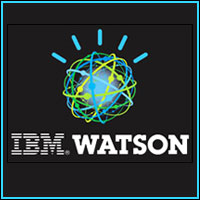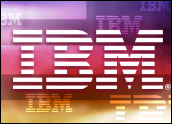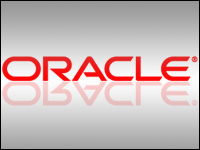
Pardon the pun, but there’s nothing elementary about IBM’s Watson Business Unit. IBM’s Watson initiative takes cognitive computing to the head of the class.
IBM last week announced it was committing US$1 billion and 2,000 employees — as well as its considerable research and development talents and marketing muscle — to Watson. This effectively puts the full weight of its global technology and services brand behind the newly formed BU and initiative.
Michael Rhodin, most recently SVP of IBM’s Software Solutions Group, will take charge of the Watson Group, IBM CEO Virginia Rometty said.
The company established Watson as a separate BU based on very strong demand for cognitive computing, she noted. The IBM Watson Group will develop cloud-based technologies that can power services for businesses, industries and consumers.
The new IBM Watson Group integrates design, services, core functions, technologies, and a fully formed ecosystem that includes a design lab as well as hundreds of outside external partner applicants, foundations and advisors, Rometty said. All of these elements are crucial if Watson is to succeed.
Big Blue’s $1 billion investment includes a $100 million equity fund designed to foster innovation in the company’s Watson Developers Cloud — one component of the overarching Watson ecosystem. IBM opened the Watson Developers Cloud to external application developers in 2013. The $100 million will be invested in key startup companies that are building applications to run in the Watson Developer Cloud.
The new Watson Group BU will consist of four organizations:
- The IBM Watson Innovation team, which will concentrate on core research and development;
- The IBM Watson Transformation team, which will focus on business development;
- The IBM Watson Implementation team, which will deploy Watson services and systems on behalf of IBM clients; and
- The IBM Watson Engagement team, which will handle sales and marketing activities.
What Is Watson?
Watson, best known as the supercomputer that famously beat Jeopardy! television game show contestants during a 2011 televised challenge match, is named after legendary IBM president Thomas Watson. It incorporates embedded artificial intelligence, and it uses cognitive computing capabilities to move beyond traditional compute processing functionality.
IBM engineered Watson to utilize natural language capabilities and analytics and to process and synthesize information in a manner similar to the way humans think. This in turn enables Watson to learn very quickly and effectively in order to analyze and interpret large amounts of data.
During the launch event, IBM executives underscored the fact that Watson has the ability to fully comprehend human style communication; to generate and evaluate evidence-based hypotheses; and to adapt and learn from training, interaction and outcomes.
IBM has constructed an entire ecosystem around Watson that presently includes nearly 900 outside development partner applicants, and that figure is rising quickly as developers flock to the platform, said Stephen Gold, VP of IBM Watson Solutions marketing.
IBM constructed the Watson Group as a cloud service that helps corporate enterprises address real world business problems. The Watson-based cognitive computing systems will act as smart advisors, performing a variety of functions across a wide range of vertical markets. For example, it can assist doctors in diagnosing medical conditions and even advise patients on courses of treatment based on the their stated profile preferences. It also can help retail businesses devise marketing and business strategies that align closely with their customers’ target goals.
Initiative Highlights
The IBM Watson Group is a fully fleshed out technology and business initiative with specific products and a business plan that includes a timeline for return on investment and revenue forecasts.
IBM unveiled three Watson cloud-based offerings — the Watson Discovery Advisor, Watson Analytics and Watson Explorer — to accelerate product and technology deliverables. The IBM Watson Discovery Advisor is a leading-edge search service designed for educational institutions and pharmaceutical and publishing companies. IBM Watson Analytics can field natural language questions from users and search for a variety of answers from among cloud-based data repositories. IBM Watson Explorer helps users across an enterprise uncover and share data-driven insights more easily, and assists them in launching Big Data initiatives faster.
Watson will be deployed on SoftLayer Technologies, a cloud computing infrastructure business IBM purchased last June. SoftLayer has approximately 21,000 enterprise customers and a global cloud infrastructure platform spanning 13 data centers throughout the U.S., Asia and Europe. It provides the infrastructure for cloud-centric, performance-intensive applications in the areas of mobile, social media, gaming and analytics — market segments that closely align to IBM’s business and technology strategy.
Watson Labs: The Watson Group will feature labs where customers and prospective customers can do hands-on learning and test the cognitive computing systems. IBM also will offer workshops and seminars on the benefits of cognitive computing.
Watson on Power Systems P8: IBM Watson running on its Power Systems P8 Power Series servers has the ability to share content and learn more quickly in cloud environments to facilitate the increasingly popular crowdsourcing mechanisms.
Watson Headquarters: The IBM Watson Group will be headquartered in a “green” building in the heart of NYC’s Silicon Alley at 51 Astor Place on the edge of East Greenwich Village.
Executives from several key IBM customers and partners from its strategic vertical markets in finance, healthcare, retail and travel were on hand at the Watson event to discuss the ways they’re using Watson’s cognitive computing abilities to drive greater efficiencies and economies of scale in their respective market segments. The included Memorial Sloan Kettering Hospital, Elsevier, Fluid Retail and Travelocity.
Watson’s cognitive capabilities have assisted 125,000 physicians to perform gene sequencing on breast cancer tumors, Memorial Sloan Kettering Chief Executive Officer Mark Thompson said.
As a result, cancer treatment therapies have “increased exponentially from four to 800 in the last 20 years,” he noted, adding that oncologists can now identify and distinguish more than 50 types of breast cancer tumors and develop more targeted and effective treatments.
Will They Come?
A day before the Jan. 9 announcement, The Wall Street Journalran an article that openly questioned Watson’s ability to generate a large recurring revenue stream in the short term.
Rometty expects Watson to generate $10 billion in annual revenue over the next decade, but it has only made $100 million since 2011, the article noted.
Fair enough. Healthy skepticism is always a good thing with respect to technology and product deliverables. At the same time, what The Wall Street Journal article overlooks is the obvious fact that cloud computing and cognitive computing is still in its early stages.
The potential leading-edge enterprise adopters in banking, finance, healthcare, retail insurance are naturally conservative and cautious about deployment; they will almost always opt to ascertain that the benefits outweigh the risks in advance of any upgrade or migration.
Mainstream adoption of Watson cognitive computing solutions should gain significant traction over the next two to three years. If by 2016, IBM Watson Group is not generating substantial and recurring annual revenue, then there will be cause for concern.
Over the past several years, the company continuously has bolstered its position in cloud computing, mobility, security and management services via a series of targeted acquisitions such as the SoftLayer purchase. Additionally, in the three years since the Jeopardy! challenge, IBM continuously has evolved the core Watson technology.
To cite just one example, Big Blue has shrunk Watson to the size of “three stacked pizza boxes; down from its original size of a master bedroom,” which is a significant advantage for potential enterprise customers concerned about consolidating physical space in their data centers.
All of these initiatives are designed to provide or add to a solid foundation for the Watson cognitive computing initiative. IBM executive leadership is betting that Watson and cognitive computing will be revolutionary technology, much like the mainframe, the personal computer and mobile phones.
The Right Stuff
Overall, IBM’s Watson Group announcement was extremely well thought out from both a short-term tactical and a long-term strategic perspective. IBM has amassed all the right ingredients for success: dedication and commitment in terms of manpower, monetary investment, a well-developed partner ecosystem, and the right geographic location.
The random element is this: Will corporate and consumer customers embrace Watson? That remains to be seen. However, Watson is off to a good start, with nearly 900 third-party developers signing on. Applications are the lifeblood of any technology platform, and the early ISV enthusiasm for Watson augurs well for its success.
IBM’s decision to base the Watson Group in New York City’s Greenwich Village is both practical and symbolic. “The Village,” as New Yorkers call it, long has been identified as the birthplace of leading-edge movements. Big Blue’s Watson headquarters is within walking distance of Wall Street and the financial district, as well as large hospitals and universities that include many of the company’s top customers in banking, healthcare, insurance and education.
It was a savvy move on IBM’s part to locate the Watson BU within walking distance or a short bus or subway ride to many potential customers. Making it convenient for them to visit the labs and get access to hands-on experience and training is a savvy move on IBM’s part. The decision to situate the Watson BU in the center of one of the world’s top financial, engineering and academic spots bodes well for sparking interest and generating revenue among a wide variety of business professionals.
In summary, IBM is positioning the Watson BU for success and doing everything within its power to lure prospective enterprises and development partners to this powerful, emerging cognitive computing platform.






















































Social Media
See all Social Media